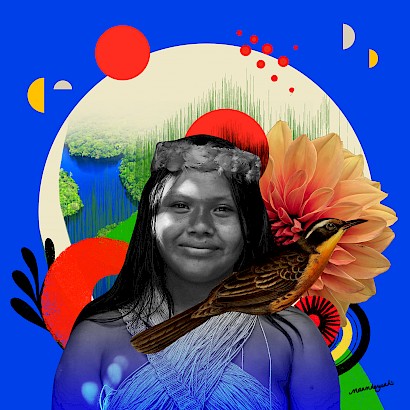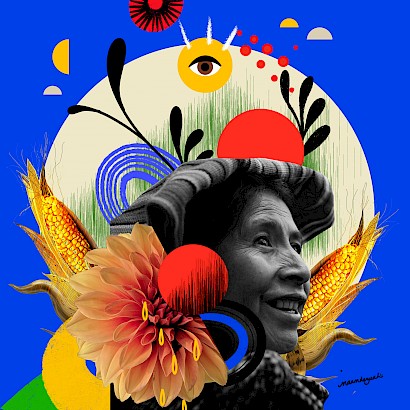In 2020, the Covid-19 pandemic unleashed a crisis that has impacted a wide range of arenas, with particular consequences in community life. In Latin America, the crisis has revealed and increased historic social inequalities influenced by race, class, gender, sexual orientation, age, disabilities, and other aspects. The pandemic and its governmental responses have had a greater impact on populations that already face structural discrimination, violence and precarious access to services like health care, education, formal employment, and information networks. The impacts have been even more serious for rural communities that depend on local agricultural production as they are part of the informal economy. This means that their income and options to sustain their communities are at risk. In addition, there is a growing risk of infection due to ongoing extractive activities in their territories during the quarantine.
The region is currently experiencing the virus's internalization phase, meaning that it is reaching many rural communities and territories far from large cities. In this context, indigenous peoples are being most affected by the pandemic. The Inter-American Commission on Human Rights (IACHR), in the Resolution “Pandemic and Human Rights in the Americas,” recognizes indigenous peoples as a “group in a particular situation of vulnerability.” Although the pandemic has developed differently in each country, there are similarities among communities, as they see a lack of effective governmental responses to guarantee rights and provide adequate protection to indigenous peoples in the face of the expanding virus.
However, Covid-19 is not the first pandemic faced by indigenous peoples, nor is it the first crisis to impact their bodies, lives, and physical and cultural survival. Since their territories were first invaded over 500 years ago, communities have built and maintained ways of life and continuance, using ancestral knowledge and collective adaptations to the global and local context. This is why UAF-LAC has a crucial political and ethical commitment to make known the situation that indigenous territories currently face, magnifying the voices of women who defend their territories.
To tell these stories we have conspired with two feminist outlets that have an editorial line from and for the south: La Ruda in Guatemala, is the first digital magazine dedicated exclusively to sharing the stories of women defenders of Abya Yala's territories and AZmina in Brazil, which fights male chauvinism using its magazine and app with a mix of journalism, technology, and accurate information. Both outlets took on the task of delving into the contexts of communities accompanied by the Urgent Action Fund for Latin America and wove these stories together, along with those of women from other territories close to their activist experiences. Jointly, we created two special articles that reflect the current experiences of indigenous women in six Latin American countries.
Although many indigenous peoples do not have the necessary state support to confront the pandemic, from the lens of self-government, these women protagonists and their communities have organized themselves to create guarantees based on collective care, ancestral knowledge, and solidarity between peoples. The indigenous peoples continue to be in permanent resistance, urging the States to guarantee their rights, life, and territories.
As a regional feminist Urgent Action Fund, our mission is to contribute to the sustainability and strengthening of women's and feminist movements, supporting the resistance and demands of women defenders and activists as they transform unjust and unequal systems. That is why, with this journalistic initiative, we seek to make visible the current resistance of women who protect life, and support their transformative actions, that are making possible the continuance of indigenous people and the living memory of their elders. We also seek to raise up their voices, which demand governmental action – the protection and mitigation measures required by this pandemic– ensuring that these actions are also respectful of their rights, practices, and cosmovisions.
 |  |
| Click on the picture to see the report | Click on the picture to see the report |